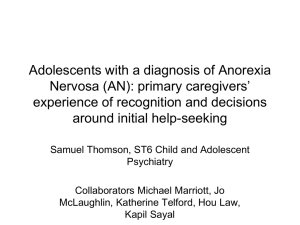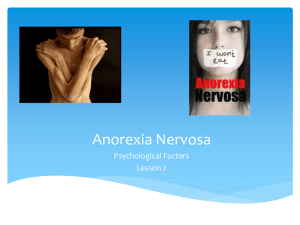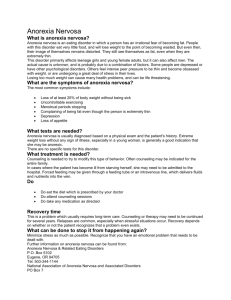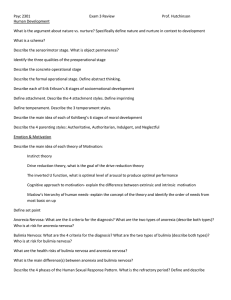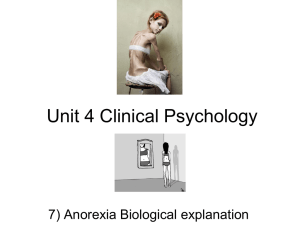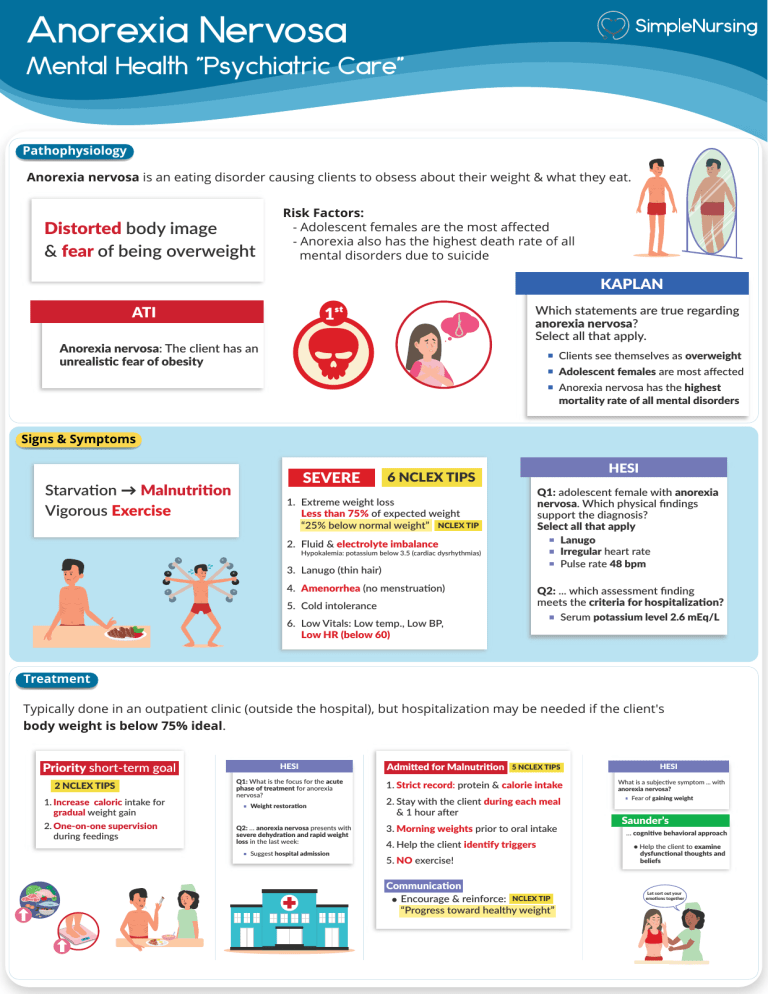
Anorexia Nervosa Mental Health "Psychiatric Care" Pathophysiology Anorexia nervosa is an eating disorder causing clients to obsess about their weight & what they eat. Distorted body image & fear of being overweight Risk Factors: - Adolescent females are the most affected - Anorexia also has the highest death rate of all mental disorders due to suicide KAPLAN ATI 1st Which statements are true regarding anorexia nervosa? Select all that apply. Anorexia nervosa: The client has an unrealistic fear of obesity Clients see themselves as overweight Adolescent females are most affected Anorexia nervosa has the highest mortality rate of all mental disorders Signs & Symptoms Starvation → Malnutrition Vigorous Exercise SEVERE HESI 6 NCLEX TIPS Q1: adolescent female with anorexia nervosa. Which physical findings support the diagnosis? Select all that apply Lanugo Irregular heart rate Pulse rate 48 bpm 1. Extreme weight loss Less than 75% of expected weight “25% below normal weight” NCLEX TIP 2. Fluid & electrolyte imbalance Hypokalemia: potassium below 3.5 (cardiac dysrhythmias) 3. Lanugo (thin hair) 4. Amenorrhea (no menstruation) Q2: ... which assessment finding meets the criteria for hospitalization? Serum potassium level 2.6 mEq/L 5. Cold intolerance 6. Low Vitals: Low temp., Low BP, Low HR (below 60) Treatment Typically done in an outpatient clinic (outside the hospital), but hospitalization may be needed if the client's body weight is below 75% ideal. Priority short-term goal 2 NCLEX TIPS 1. Increase caloric intake for gradual weight gain 2. One-on-one supervision during feedings HESI Q1: What is the focus for the acute phase of treatment for anorexia nervosa? Weight restoration Q2: … anorexia nervosa presents with severe dehydration and rapid weight loss in the last week: Suggest hospital admission Admitted for Malnutrition 5 NCLEX TIPS 1. Strict record: protein & calorie intake 2. Stay with the client during each meal & 1 hour after 3. Morning weights prior to oral intake 4. Help the client identify triggers 5. NO exercise! Communication Encourage & reinforce: NCLEX TIP “Progress toward healthy weight” 35 kg HESI What is a subjective symptom ... with anorexia nervosa? Fear of gaining weight Saunder’s … cognitive behavioral approach ● Help the client to examine dysfunctional thoughts and beliefs Let sort out your emotions together
